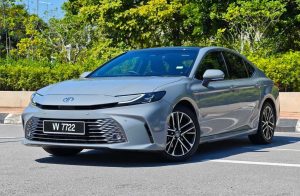Why plug-in hybrids consume (much) more fuel than expected
By ETX DAILY UP | 31 March 2024
PARIS: A recent study published by the European Commission reports that plug-in hybrid cars are actually considerably more polluting than carmakers claim.
On average, they produce around 3.5 times the emissions that they theoretically should, with drivers using more fuel than initially estimated.
As of Jan 1, 2021, all new cars sold in Europe must carry an onboard fuel consumption monitor, a small device that measures the amount of fuel used, whether you drive a gasoline, diesel or hybrid vehicle.
This monitoring has enabled the European Commission to produce a report about actual CO2 emissions compared to the theoretical data provided by manufacturers. Unfortunately, the situation is far less flattering than carmakers might hope.
The study shows that, for plug-in hybrids, CO2 emissions are 3.5 times higher than advertised.
The "real" average fuel consumption for this type of vehicle is 5.94 l/100 km, compared with 1.69 l/100 km according to manufacturers' figures. This means that, in reality, plug-in hybrids emit an average of 139.4g of CO2 every kilometre, compared with the 39.6g claimed by manufacturers.
To explain this difference, the report points out that drivers don't typically use these hybrids in electric mode as often as they could, whereas in testing, the automakers use them in an optimised way.
Owners of these vehicles make much more medium- to long-distance journeys on secondary or trunk roads, where the combustion engine is put to work, rather than at low speeds in town, where the electric motor takes over.
It should be noted that the European Commission has modified the calculation of the utility factor, which corresponds to the proportion of kilometres covered with the electric motor compared to those covered with the internal combustion engine, in order to bring it closer to real-life conditions. These changes will apply from 2025.
This report is based on data collected throughout 2021, on a sample of 617,194 cars, including 123,740 hybrids.
Tags
Autos News
Reviews

2026 Proton Saga: Right gear for the job

7.6
Honda Africa Twin Adventure Sports ES: Rugged refinement

Edmunds tests BMW X5 and Mercedes GLE: Which is the better P...

Chery Tiggo 7 PHEV and Tiggo 8 PHEV: Monsoonal exploit

7.2
CFMoto 450MT: A good all-rounder

8.8
Toyota Camry 2.5 HEV: Extra premium and beyond

7.2
Jetour VT9 Prime: Space comes first

General Tire’s Altimax GS6 shines in dry and wet
Videos

BYD Atto2's rotating centre display

Free & Easy Media Test: Latest Proton X50 Flagship to Kuanta...

Zeekr Space Sunway City Video
